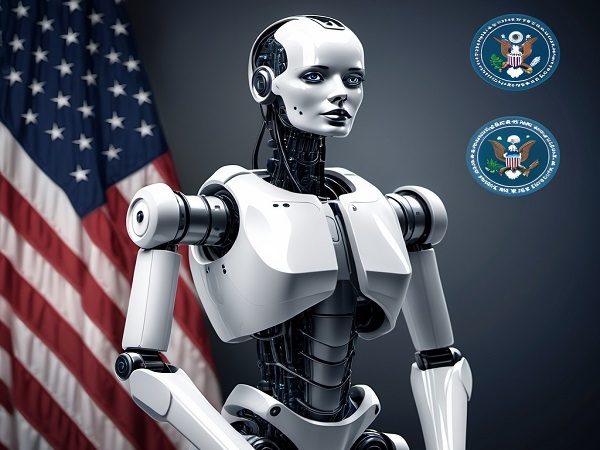As AI systems become more personalized and sophisticated, simple voice assistants or chatbots such as Siri and Alexa will likely receive significant upgrades that will enhance users’ experiences. Advances in automation and machine learning will make AI capable of learning from users’ habits, making it possible for AI to predict and act without constant input. These new capabilities will elevate current AI and automation technology, paving the way for intelligent AI agents.

Intelligent AI agents bring enhanced intelligence, learning, and decision-making capabilities to workflows and tasks, allowing virtual agents to tackle more complex and dynamic environments. Intelligent AI agents could soon be used to manage projects and assist in the decision-making process, while simultaneously becoming more autonomous as they successfully complete tasks with minimal human intervention.
According to Gartner, “By 2027, businesses will rely more heavily on autonomous AI systems to replace legacy systems, reduce modernization costs by 70%, and even interact with new ‘machine customers’ in emerging markets. This indicates a shift from humans interacting with machines to machines interacting with other machines for operational tasks.”
Federal agencies could benefit from integrating intelligent AI agents into their operations. Intelligent AI agents would streamline workflows and improve citizen engagement. They would bring transformative changes to how the federal government operates by improving efficiency and the delivery of public services. For example, AI agents could automate tax processing for the IRS or benefit applications for the Social Security Administration (SSA). This would reduce backlogs and make government services faster and more reliable.
In addition to automating routine tasks, intelligent AI agents could have a significant impact on federal agencies in the following four ways:
- Process Optimization
AI agents could streamline processes such as procurement, supply chain management, and infrastructure planning. Intelligent AI agents could also enhance federal procurement by optimizing data analysis, vendor selection, and contract management. Soon, intelligent AI agents could be used to optimize air traffic for the FAA by analyzing real-time flight data and adjusting flight routes to prevent congestion. As a result, these agents would increase efficiency, reduce delays, and improve overall safety.
- Cybersecurity and Risk Management
Intelligent AI agents could soon be used to better protect critical infrastructure and sensitive data from cyberattacks by providing real-time threat analysis and response. These agents could continuously monitor networks for security breaches, detect unusual behavior, and autonomously respond to threats in real time.
- Personalized Services
Intelligent agents could be used to improve the citizen experience by reducing frustration associated with navigating federal services. These agents would likely enhance response times and overall user satisfaction. For example, AI agents could act as virtual assistants for people applying for healthcare benefits, veterans’ services, or other federal programs. They would guide users through complex processes, answer questions in real time, and provide tailored recommendations based on individual needs.
- Regulatory Compliance and Oversight
Federal regulatory bodies, such as the Environmental Protection Agency (EPA) and the Securities and Exchange Commission (SEC), could use AI agents to ensure compliance with federal laws and regulations. Intelligent AI agents could monitor companies’ activities, detect violations, and automate the auditing process.
Marcel Shaw is a seasoned technology blogger at marcelshaw.com. With over 30 years of experience as a technical consultant for top IT companies, he has extensive experience with U.S. government agencies. Marcel has provided legal expert witness services in addition to his roles as a consultant at Novell, Dell, Ivanti, ServiceNow and others. His expertise covers network/IP infrastructure, security and compliance, cloud, document management, AI, and IT Service Management. A Brigham Young University graduate, Marcel offers valuable technology insights and best practices for IT professionals.


Leave a Reply
You must be logged in to post a comment.